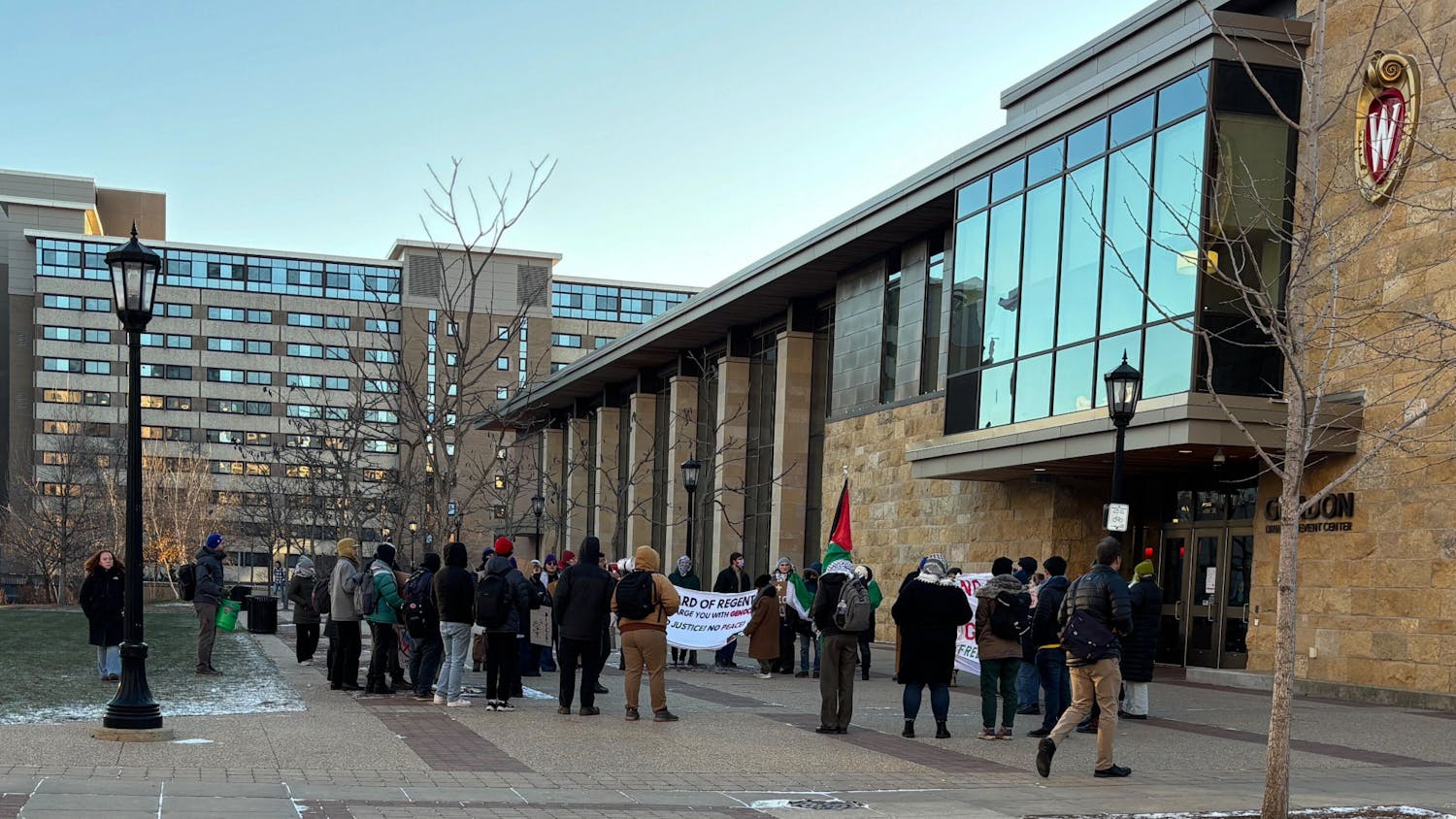A development company’s proposal to tear down Stadium Bar for a student-focused apartment complex drew concerns from residents and city officials at a neighborhood meeting Thursday.
The Minneapolis-based Opus Group plans to tear down the Stadium Bar, located at 1419 Monroe St., to build an eight-story apartment high-rise oriented toward students.
The current plans, which are subject to change, call for 90 to 120 housing units with commercial space on the first floor.
Stadium Bar co-owner Dan McCarty said after being approached by Opus he decided it was time to sell the property.
“[Stadium Bar] had a good and successful run,” McCarty said.
Students at the meeting expressed concern that this student apartment complex could be unaffordable for many students.
UW-Madison senior Indy Stluka said the lack of affordable student housing around campus “hurts working students the most.”
But Opus Group representative Julie Ledger said as new complexes are built, older apartments would become cheaper. She also said lower-cost housing simply was not the developers’ goal with the proposal for Monroe Street.
Community members and city officials at the meeting also raised a number of concerns about the project, including the increased residential population the complex would bring.
University of Wisconsin-Madison Police Chief Susan Riseling said the proposed apartment complex is “a terrible idea” because it does not conform to the neighborhood identity.
“This block was really meant for commercial spaces, not residential,” Riseling said. “I think anything over four stories is an issue.”
Madison resident and former District 5 alder Robbie Webber said she believes the increased number of residents the complex would bring to the area would benefit the neighborhood.
“I actually believe in cities,” Webber said. “For this location, I don’t think eight-stories is out of whack.”
Even with the concerns brought up by the community, Ald. Scott Resnick, District 8, said the project would most likely move forward.
“This is an owner-to-owner transaction,” Resnick said. “There’s not much the city can do to stop it.”






